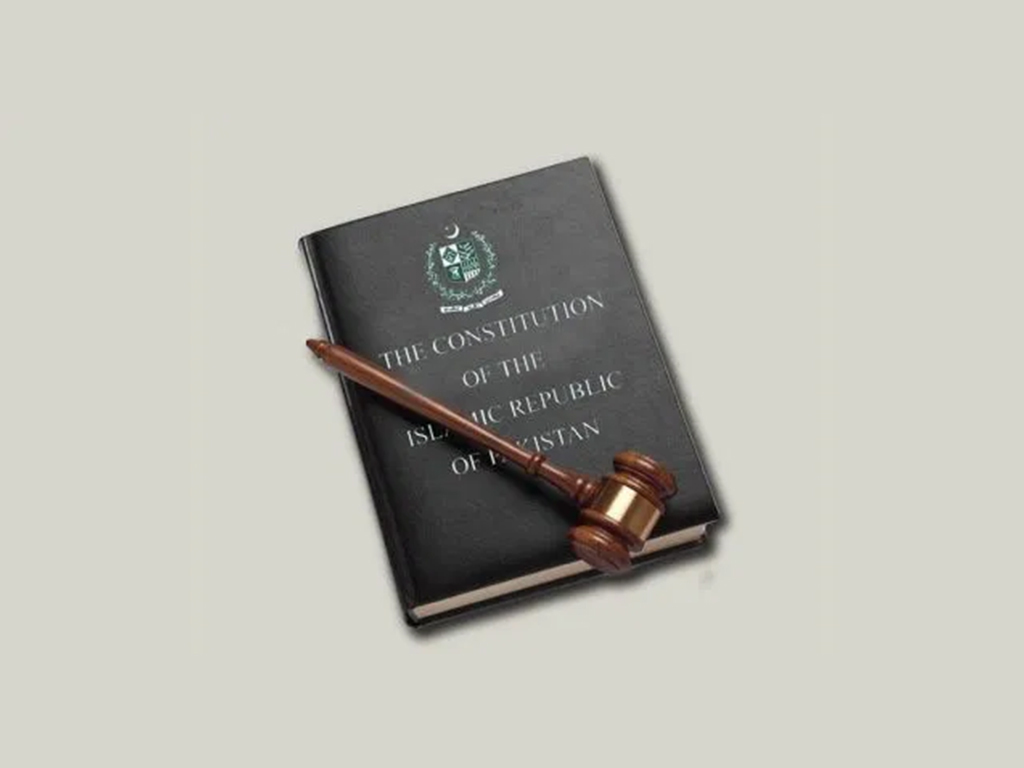Ever since the 18th Amendment has become a subject of renewed interest, the fragile state of Islamabad’s finances has been used as the most passionate argument to critique the Amendment and the then NFC award. The fallacy of that argument has been discussed ad nauseum in this space. However, a new critique has surfaced in public discourse of late: how have the people benefited after the critical functions and areas of public service delivery were transferred to the provinces. Let’s take a look at the tenability of this critique.
For records sake, let it be known that it is not as if history was being written in gold before the 18th amendment. Pakistan’s lost decades began long before that amendment was passed; both in terms of economic growth, and in terms of the quantity and quality of the delivery of public goods. The continuation of the decay, or worsening in some cases, is only a part of the multi-decade falling trend line that clearly did not begin in 2010.
The concept of inertia should also be kept in mind. Since provinces hadn’t had the opportunity to manage what should have been assigned to them since the 80s, how can they be expected to develop capacity in a matter of few years. Institutions take long many years to develop.
Of course, these arguments do not mean that provinces can be exempted from their shoddy performance in what squarely lies in their domain: education, health, labor and technical training, law and order, agriculture, road and other infrastructure, agri-income & property taxes, and so forth. It is just that giving the center back these functions will not necessarily be fruitful. Islamabad has enough exhibits of poor governance of its own, both pre- and post 18th amendment.
The provinces are also guilty of not devolving further to the third tier of government, not only political and administrative transfer but also fiscal transfer at least in so far as property taxes are concerned. But there is something that ought to be considered well: weak (if not absence of) national consciousness of the fact that fate of Pakistanis rests mainly with the provinces as far as their day to day lives are concerned.
This weak national consciousness manifests itself in a variety of ways. For instance, the constituency for local government seems missing; in public discourse the constituency for anti-corruption appears more than the constituency for real reforms including local government reforms.
Or consider the fact that universities, think tanks, business chambers or other similar civil society institutions focus more on national level issues, whereas provincial level issues and opportunities are mostly a one-off side item. Discourse on national level media is no different. And although some regional/local TV channels, newspapers, and FM radio do exist, their insignificant readership/audience speaks volumes about weak national consciousness of the consequences of 18th amendment.
Some opinion makers argue that in the next NFC round, Islamabad should peg some part of the divisible pool transfer to provinces’ performance in key socio-economic areas such as health and education. The problem with this suggestion is that it is difficult to manage a federation through stick, especially when the nature of public service delivery options and their outcomes are directly linked to political choices, which no NFC can or should govern. And second, which provincial leadership in their right minds would ever agree to such pegs.
Instead, here is what Islamabad should do: go on a massive citizen awareness campaign to inform Pakistanis about the roles and responsibility of federal, provincial, and local governments, and their finances. In addition, it should come up with provincial performance scorecards ala Doing Business indictors that compare provincial performance across a variety of public goods that ought to be delivered by provincial governments. The idea is to strengthen and invoke national consciousness, which in turn can pressurize provincial governments to deliver and to devolve further.























Comments
Comments are closed.